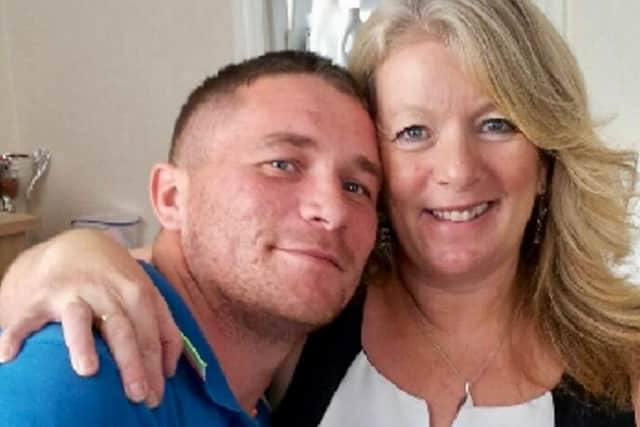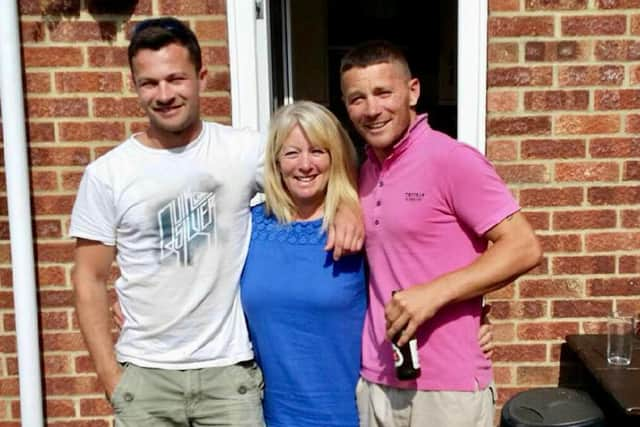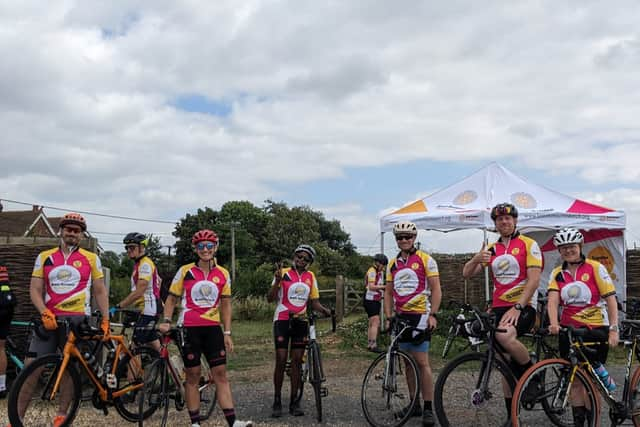Man, 38, became ‘really horny and aggressive’ before ‘terrifying’ brain tumour diagnosis
and live on Freeview channel 276
A man was given the devastating diagnosis he had a brain tumour after suddenly becoming “really horny and aggressive”.
Shaun Turner, from the Isle of Wight, was told he had an orange-sized mass on his brain in 2014 after suffering the bizarre personality changes. The 38-year-old had also gradually been losing his eyesight and sense of smell before being told about the tumour.
Advertisement
Hide AdAdvertisement
Hide AdHis wife booked him an eye test which found an anomaly and led to a referral for a brain scan, which later revealed the mass on his brain. Mr Turner underwent an operation to remove the tumour in October 2014 and now requires regular check-ups as there are still traces of cancer in his brain.


The dad-of-two, who works as a Bosun on Red Funnel ferries, explained: “I had personality changes. I’m normally very chilled and easygoing with loads of energy. The effects of the tumour made me really tired all the time, really horny and aggressive.
“In all honesty when I found out it didn’t feel real. My entire family and friends were all so worried about it that I didn’t feel able to show any weakness or that it fazed me. I had a positive attitude and genuinely believed I would be alright, but I was terrified inside. I believe there are very small traces left which is what I had radiotherapy for in December 2020.”
More than 12,000 people are diagnosed with a primary brain tumour each year, around half of which are cancerous, according to the NHS. Primary glioblastoma is the most common type of brain cancer in adults. This originates in the brain and first appears as a grade four glioblastoma.
Advertisement
Hide AdAdvertisement
Hide AdMany others are diagnosed with a secondary brain tumour. Secondary cancer refers to the spread of cancer from one part of the body to another. In cases of a secondary glioblastoma, the cancer still originates in the brain but has developed from a lower grade type of brain tumour known as an astrocytoma.


Mr Turner’s family were hit by the disease once again in December 2018 after his mum, Jill Turner, died from a glioblastoma - a fast-growing and aggressive brain tumour. She was initially misdiagnosed with a mental breakdown but later received intense radiotherapy for the cancer. Sadly, the tumour was too aggressive and she tragically died just four months later.
Mr Turner’s brother Daniel, 36, an electrician, from East Cowes, Isle of Wight, said: “For the disease to have struck our family twice was shocking and we have asked doctors the likelihood of passing it onto our children but they have said it is purely bad luck. My brother has had genetic testing and there is nothing to prove it is in your family gene – it’s just awful luck.
“The treatment my mum had in such a short space of time caused side effects including extreme fatigue and you could see how it was impacting her physically. Looking back knowing what we know now, we may have chosen a different treatment pathway.“Supporting a charity that focuses on the research into brain tumours is vitally important so we can help find better treatment options and eventually find a cure for the disease.
Advertisement
Hide AdAdvertisement
Hide Ad“It’s too late for my mum, but for people like Shaun who are living with the disease, we must progress the research of brain tumours and bring it in line with advances in the treatment of other cancers.”


Daniel was among a team of nine cyclists who took on the 68-mile Isle of Wight Randonnée on 1 July to raise money for the charity Brain Tumour Research. Dozens of cyclists completed the route around the island raising more than £10,000 for the charity.
Dr Karen Noble, director of research, policy, and innovation at Brain Tumour Research, said: “We are sorry to hear this has happened in Daniel’s family, but are grateful for all his fundraising efforts. Brain tumours are indiscriminate; they can affect anyone at any age.
“To have these two diagnoses in the same family is an extremely rare occurrence, less than a one in a million chance. If we are to change the stark facts around survival of this disease, then we simply must invest more into discovery science – the route to a cure.”
Comment Guidelines
National World encourages reader discussion on our stories. User feedback, insights and back-and-forth exchanges add a rich layer of context to reporting. Please review our Community Guidelines before commenting.
